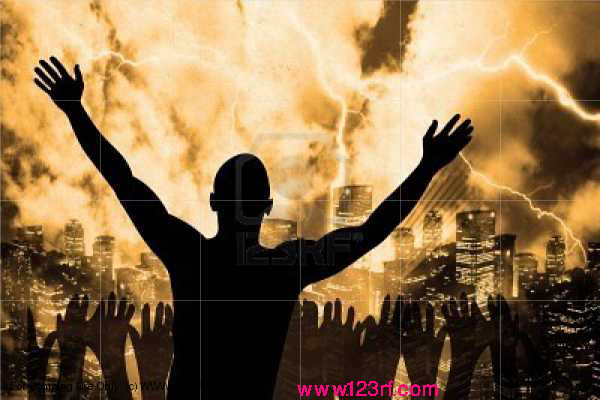
Page-1|Page-2
|
Page-4|Page-5|Page-6
|Page-7
|
Page-8
|
Page-9
|
Page-10
|
BaKhabar  Download pdf Download pdf
|
| OUR
JOURNEY TO THE DAY OF RESURRECTION, PART-XIV - By Gheyas S Mahfoz
Hashmi, Jeddah (hgheyas@albatool.com.sa)
… Continued from previous issue. Below are links to all the previous parts for the convenience of readers and those who are seeking Jannah.
In Mahshar (Grand Assembly) there will be no wealth to compensate. All claims will be settled from one’s rewards (good deeds) earned in this world. Right of the oppressed will be paid from the good deeds of oppressor (tyrant). If the oppressor does not have any good deeds to pay, the sin (bad deeds) of the oppressed will be credited to the account of the oppressor.  The Messenger of Allah (S) said, "Do you know who is the Muflis (bankrupt)?" They (the companions) [R] said, "The bankrupt amongst us is the one who has no money and no property."  The Messenger of Allah (S) said, "Indeed the Muflis (bankrupt) from my nation is the one who comes on the Day of Judgment with prayers, fasting, and Zakat (to his/her credit). (Despite all this) he comes having cursed this one, slandered this one, eaten the wealth of this one, shed the blood of this one, and beaten up this one. So this one will be given and recompensed from his good deeds and this one from his good deeds. If his good deeds are all used before all his dues (to those who were wronged by him) are paid off, their bad deeds will be taken and thrown on him. Then he'll be thrown in the fire at last."[Reported by Imam Muslim, Tirmidhi and Ahmad]  The man will not be allowed to move till they answer five (5) questions. It was narrated from Ibn Mas’ood (R) that the Prophet (S) said: “The son of Adam will not be dismissed from before his Lord on the Day of Resurrection until he has been questioned about five things: his life and how he spent it, his youth and how he used it, his wealth and how he earned it and how he disposed of it, and how he acted upon what he acquired of knowledge.”(Tirmidhi). The life-world is the word of work and action, i.e. earning good or bad deeds. The Aakhira (after-life world) is the world of accounting and reckoning. The man was given complete freedom in this world to do as they wish. Allah will not come down to catch their hand saying O’ my servant, do this and not to do that. He has already sent His clear-cut messages to His servant through His last Prophet (S) in the form of book (Quran) and saying (Hadith) in order for them to know the purpose of their Creation and to understand His planning, then to work accordingly. Nothing is hidden from man. Allah has completed His Hujjat (Proof) to them, and that will be shown to them at the Day of Judgement so that they could not say they were not aware of this and that. Hence, they will get what they have done. No repentance will be entertained there. |
What
is Zakat? The institution of Zakat was fully prescribed in the second Hijri year when the Muslims were beginning to blossom as a united community in Madinah. It played a crucial role in assisting those in society who suffered from poverty and were unable to meet their essential needs as they now became eligible for financial support from fellow citizens. The order to pay Zakat is from Allah, the Mighty, the Wise. Therefore acquiring knowledge of Zakat and implementing it are at the core of Islamic belief and practice. Zakat occupies an important position in Islamic law and the Islamic social system. It is not given as a favour nor as a gift but is rather as a duty where the amount is calculated in accordance with divine instruction. It is a major Islamic duty either given by the individual or collected by the state in order to fulfill a particular social service. The one who gives it does not hold favour for doing so, and the beneficiary does not have to beg for it; the Islamic social system could never be based on begging. ...the Islamic social system could never be based on begging. The institution of Zakat works to fulfill the basic needs of the Muslim community. It strikes a balance between the economics of socialism and its call for equal distribution, and that of capitalism and how it concentrates wealth into the hands of the elite. Zakat is not simply regarded as a tax, it is an act of worship which may be described as financial worship. Failure to properly discharge the obligation is a sin that incurs Allah's wrath and is a cause for the loss of divine protection over one's assets. It is also regarded as a factor that may justify punishment in the afterlife. For Muslims, this is part of the belief system that denies absolute capital accumulation in the portfolios of those at the pinnacle of economic life. Rejecting the order of Zakat was equated by the first Caliph, Abu Bakr, to be a violation that sanctioned the waging of war against those who either denied it or refrained from giving it.   The Muslims witnessed such an era during the reign of Umar bin Abdul-Aziz, so much in fact that the Zakat collected was said to have been used to sponsor those who needed financial help in getting married, as the number of poor people willing to accept Zakat had diminished. It is unfortunate that this notion of divine blessing is often neglected in contemporary discourses on Islamic finance. In the Shari'a the word Zakat refers to the determined share of wealth prescribed by Allah to be distributed among the categories of those entitled to receive it. From this definition we can see that Zakat revolves around four matters: 1. The types of people upon whom Zakat is obligatory: This relates to individuals that have full ownership and possession over certain items of wealth for an entire lunar year, and whose value exceeds a set threshold. 2. The types of wealth upon which Zakat is obligatory and its quantity: Not all items of wealth are zakatable. The Shari'a has outlined certain categories of wealth that are subject to Zakat such as: gold and silver, livestock, minerals, etc. It also explained how much of these material assets one needs in order for it to be subject to Zakat. 3. The amount obliged to pay: This relates to the actual amount of wealth that needs to be distributed amongst the recipients from each item of wealth. 4. The recipients of Zakat: The Qur'an specifies the categories of Zakat recipients and mentions eight types of recipients. Where need arises beyond these set categories, the Muslim community are enjoined to financially assist through Sadaqah. To summarise, like all acts of worship, there are certain conditions which qualify a person with the obligation of Zakat. Essentially a Muslim is obliged to pay Zakat when he has had full ownership of certain assets whose net amount is equal to or above the specified Nisab, base amount, for an entire lunar year. Source: http://www.islam21c.com/emag/zakat/ Related Article: Letter and Spirit of Zakat |
|
3
Home
| About
Us | Objective
| Scholarship
| Matrimonial
| Video
Library | Projects | Quran
Resources | Lend
a hand
|